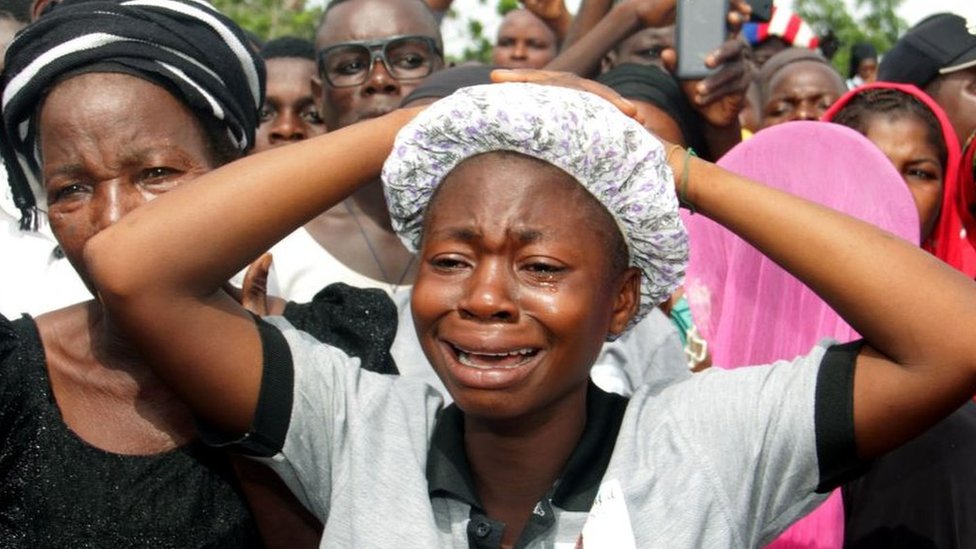Nigeria, Africa’s most populous nation, is a country of extraordinary diversity—ethnic, cultural, and religious. Among its religious communities, Nige
Nigeria, Africa’s most populous nation, is a country of extraordinary diversity—ethnic, cultural, and religious. Among its religious communities, Nigerian Christians form one of the most vibrant, influential, and resilient groups on the continent. Spread across the South and significant parts of the Middle Belt, Nigerian Christians belong to various denominations, traditions, and movements that shape the country’s identity. Their story is one of faith, perseverance, cultural transformation, and social impact. This article explores the history, growth, challenges, and future of Nigerian Christians in a comprehensive and deeply insightful manner.
Historical Roots of Christianity in Nigeria
Early Missionary Encounters (15th–19th Century)
Christianity first entered Nigeria in the mid-15th century through Portuguese missionaries who arrived along the West African coast. However, this early presence was limited and did not establish deep roots. The real spread of Christianity began in the 19th century when British missionaries from the Church Missionary Society (CMS), Methodist Church, and Roman Catholic Church took on the mission of evangelization.
One of the most influential figures in this early period was Samuel Ajayi Crowther, a former slave turned Anglican priest who translated the Bible into Yoruba. His work gave Christianity a local language and cultural framework, enabling it to flourish across ethnic groups.
Colonial Influence and Expansion
With British colonization in the late 19th century, Christian missions expanded rapidly. Churches built schools, hospitals, and administrative centers that attracted local populations. Christianity became associated with Western education, modern governance, and new socio-economic opportunities, leading to its steady adoption across southern Nigeria.
Diversity Within Nigerian Christianity
Mainline Churches
Mainline Protestant denominations—Anglican, Methodist, Baptist, and Presbyterian—played key roles in early Christian growth. They remain influential today, especially in the East and Southwest.
Roman Catholicism
Catholicism has a strong presence in Nigeria, particularly among the Igbo. The Catholic Church established major institutions such as universities, hospitals, and charity organizations that serve millions.
Pentecostal and Charismatic Movements
The rise of Pentecostalism is one of the most defining features of modern Nigerian Christianity. Churches such as:
-
The Redeemed Christian Church of God (RCCG)
-
Winners’ Chapel (Living Faith Church)
-
Christ Embassy
-
Mountain of Fire and Miracles Ministries (MFM)
-
The Synagogue Church of All Nations (SCOAN)
have grown from small prayer groups to global ministries with branches in Europe, Asia, and the Americas.
Pentecostalism’s emphasis on miracles, deliverance, prosperity, and personal empowerment appeals to many Nigerians seeking spiritual solutions to socio-economic challenges.

Cultural Influence and Social Contributions
Education and Healthcare
Christian missions laid the foundation for Nigeria’s modern education system. Some of the country’s leading schools and universities—including University of Nigeria Nsukka (UNN), Covenant University, and Babcock University—have Christian origins.
Christian hospitals, clinics, and humanitarian programs continue to support community health and development across the country.
Music, Media, and Popular Culture
Gospel music is one of Nigeria’s most influential exports. Artists like:
-
Sinach
-
Mercy Chinwo
-
Frank Edwards
-
Nathaniel Bassey
have brought Nigerian Christian music to global acclaim. Christian television networks, radio stations, and online platforms are also major forces in shaping national discourse.
Moral and Political Influence
Christian leaders often play significant roles in civic discussions, elections, peacebuilding, and national policy. Churches provide moral guidance, social stability, and community organization in times of political unrest.
Challenges Faced by Nigerian Christians
Security and Violence
The greatest challenge facing Nigerian Christians—especially in northern and central regions—is insecurity. Extremist groups like Boko Haram, ISWAP, and various armed militias have targeted Christians in numerous attacks. Rural communities in states such as Plateau, Kaduna, and Benue face ongoing threats.
These attacks have led to displacement, loss of lives, and destruction of property, creating trauma and instability.
Ethno-Religious Tensions
Nigeria’s religious landscape is closely tied to ethnic identity. Tensions between Christian-majority and Muslim-majority regions sometimes become political, fueling conflict. The struggle for land, resources, and political representation can turn violent when combined with religious differences.
Internal Challenges
Within the Christian community, issues such as doctrinal differences, prosperity theology debates, leadership conflicts, and accountability concerns create internal divisions. Nevertheless, most churches continue to work toward unity and shared purpose.
The Resilience of Nigerian Christians
Despite challenges, Nigerian Christians display extraordinary resilience. They gather in large numbers for worship, build new churches, organize crusades, and extend their ministries beyond national borders. Their faith often grows stronger in adversity, shaping a culture of perseverance.
Mega events such as:
-
RCCG Holy Ghost Congress
-
Shiloh (Winners’ Chapel)
-
Holy Ghost Fire Crusades
attract millions of worshippers seeking spiritual renewal and national healing.
The Global Impact of Nigerian Christianity
Nigerian churches are among the world’s fastest-growing Christian movements. Nigerian pastors lead large congregations in the UK, USA, Canada, South Africa, and Europe. Nigerian missionaries are active in Asia, Latin America, and the Middle East.
This global presence has transformed Nigerian Christianity into a worldwide force for evangelism, humanitarian service, and cultural influence.
The Future of Nigerian Christianity
Youth and Technology
Nigeria’s youthful population drives the future of Christianity. Social media, online preaching, Christian podcasts, and virtual prayer meetings have reshaped how young Christians engage their faith.
Interfaith Dialogue
For Nigeria to remain peaceful, interfaith cooperation between Christians and Muslims is essential. Many Christian organizations are now promoting dialogue, peacebuilding, and community collaboration.
Growth of Indigenous Theology
A new generation of theologians is shaping a uniquely African expression of Christianity—one rooted in local cultures, languages, and historical experiences.
The story of Nigerian Christians is one of extraordinary faith, resilience, and transformation. From the early missionaries to the rise of global Pentecostal movements, Nigerian Christianity has evolved into a dynamic force shaping the nation’s identity and influencing the world. Despite facing security challenges, political tensions, and internal divisions, Nigerian Christians continue to demonstrate remarkable strength and commitment to their beliefs.
As Nigeria moves into the future, its Christian community will remain a pillar of hope, progress, and spiritual renewal—guiding millions through faith, service, and unity.


COMMENTS